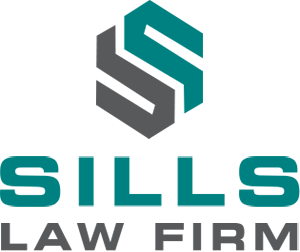What Is a Crime of Theft?
Under Connecticut law, crimes of theft occur when an individual wrongfully takes, obtains, or withholds the property of another person in order to deprive that person of their property or to give it to a third person. The types of theft crimes vary widely and can range from minor misdemeanor charges of shoplifting to felony charges of robbery. If you have been arrested and charged with a theft crime, you will be facing the potential for time in jail or prison, large fines, community service, and a permanent criminal record.
With this in mind, having a team of knowledgeable and helpful Connecticut theft lawyers representing you can mean the difference between being punished to the fullest extent of the law and having your charges either reduced or dropped.
Theft Cases We Handle in Connecticut
At The Sills Law Firm, we represent all types of theft cases involving, such as:
- Petty theft
- Grand theft
- Receiving stolen property
- Vehicular theft
- Embezzlement
- Fraud
- Forgery
- Identity theft
- Robbery
- Burglary
NEED HELP? CALL US TODAY FOR A FREE CONSULTATION WITH OUR CONNECTICUT THEFT ATTORNEYS.
Will I Be Able to Avoid Jail Time & Having a Criminal Record?
Clients are often concerned with the potential of losing their freedom after having been charged with a theft crime, as well as the effects that will result from having a criminal record. Many times, if the theft was not made through violence and you make restitution, it is possible to avoid jail time and even a criminal record. There are even diversionary programs sometimes available to first-time offenders.
What if I Didn’t Intend to Take the Item?
Sometimes, people who take property because they believe they have permission and forget to return it are charged with larceny. Let’s say you borrowed your neighbor’s box of tools and forgot to return it. Would you be charged with larceny in this case?
For you to be convicted of larceny, you must prove that you intended to not return the property. Therefore, if your neighbor presses charges, but you tell the court that you honestly forgot to return their tools, the charges will most likely be dropped. If, however, you told your neighbor you weren’t going to return the tools, larceny charges against you will probably be successful. A theft lawyer in CT will explain your options in cases where you had no intent to steal.
What Are the Different Degrees of Larceny in Connecticut?
There are six degrees of larceny in Connecticut. If you are charged, the degree that applies depends on the value of the property or money you allegedly stole.
- First-Degree Larceny: Larceny of the first degree is the most serious kind. It occurs when over $10,000 worth of property is stolen. As a Class B felony, you face a fine of $15,000 and a prison sentence of 1-20 years if convicted.
- Second-Degree Larceny: Second-degree larceny occurs when the value of the items stolen is $5,000. It is a Class C felony, punishable by up to 10 years in prison and a $10,000 fine.
- Third-Degree Larceny: A third-degree larceny is defined as stealing anything worth $1,000. The punishment for this Class D felony is 1-5 years in prison and a $5,000 fine.
- Fourth-Degree Larceny: Theft of something worth $500 is fourth-degree larceny. It is a class A misdemeanor punishable by a fine of $2,000 and a year in jail.
- Fifth-Degree Larceny: The theft of something worth $250 is considered fifth-degree larceny. The offense is a class B misdemeanor, punishable by up to six months in jail and up to $1,000 in fines.
- Sixth-Degree Larceny: Sixth-degree larceny is the final form of larceny. It occurs when someone steals a valuable item worth $250 or less. It is a Class C misdemeanor punishable by up to $500 in fines and up to three months in jail.
All of these offenses can leave you with a criminal record that impacts your future. A CT criminal defense attorney at our firm will fight to prevent a mistake from impacting the rest of your life.
What is a Diversionary Program?
By participating in a diversionary program, you can resolve your case without going to trial and have the charges against you dismissed. Connecticut offers many diversionary programs for different circumstances, including larceny charges, but there is a set of criteria you must meet to qualify.
Using a diversionary program does not require you to plead guilty, nor is it an indication of guilt. Upon successful completion, your file is sealed, and the charges against you are dismissed. To learn more about how the process would work in your case, please contact our office for a no-obligation consultation with a theft lawyer in CT.
When Should I Call a Theft Lawyer in CT?
If you’re arrested for larceny, you should contact a criminal defense lawyer right away. You may face severe legal penalties if found guilty of the criminal charges and convicted. Having to pay high fines will hurt your finances, while incarceration will take away your freedom. In addition, Connecticut courts can impose other penalties and restrictions that have a significant impact on your life. If you have been charged with larceny in Connecticut, hiring an experienced criminal defense lawyer is the best way to ensure your future and your reputation are protected. At The Sills Law Firm, LLC, we understand what’s at stake for you. We’re here for you when you need us.
Get Help with Your Theft Crime Matter
Our Connecticut theft lawyers have successfully represented thousands of criminal cases, and have the in-depth legal knowledge, skills, and resources to effectively fight your charges head-on. Regardless of the challenging aspects of your case, we are confident in our abilities to assist you.
For more information about how we can help, please contact us without delay.
Related: Weapon Crime Lawyers

